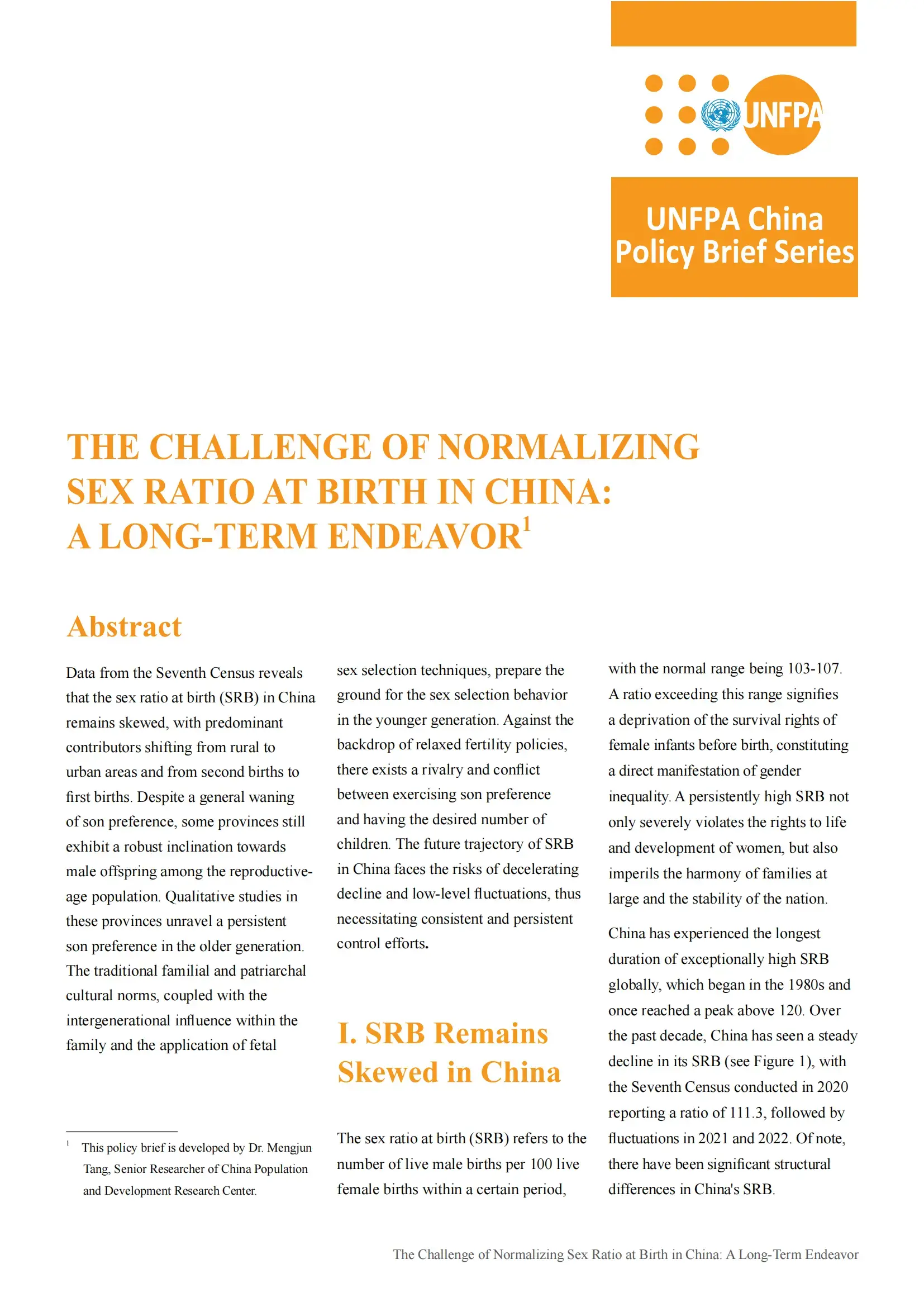Data from the Seventh Population Census reveals that the sex ratio at birth (SRB) in China remains skewed, with predominant contributors shifting from rural to urban areas and from second births to first births. Despite a general waning of son preference, some provinces still exhibit a robust inclination towards male offspring among the reproductive-age population. Qualitative studies in these provinces unravel a persistent son preference in the older generation. The traditional familial and patriarchal cultural norms, coupled with the intergenerational influence within the family and the application of fetal sex selection techniques, prepare the ground for the sex selection behavior in the younger generation. Against the backdrop of relaxed fertility policies, there exists a rivalry and conflict between exercising son preference and having the desired number of children. The future trajectory of SRB in China faces the risks of decelerating decline and low-level fluctuations, thus necessitating consistent and persistent control efforts.


